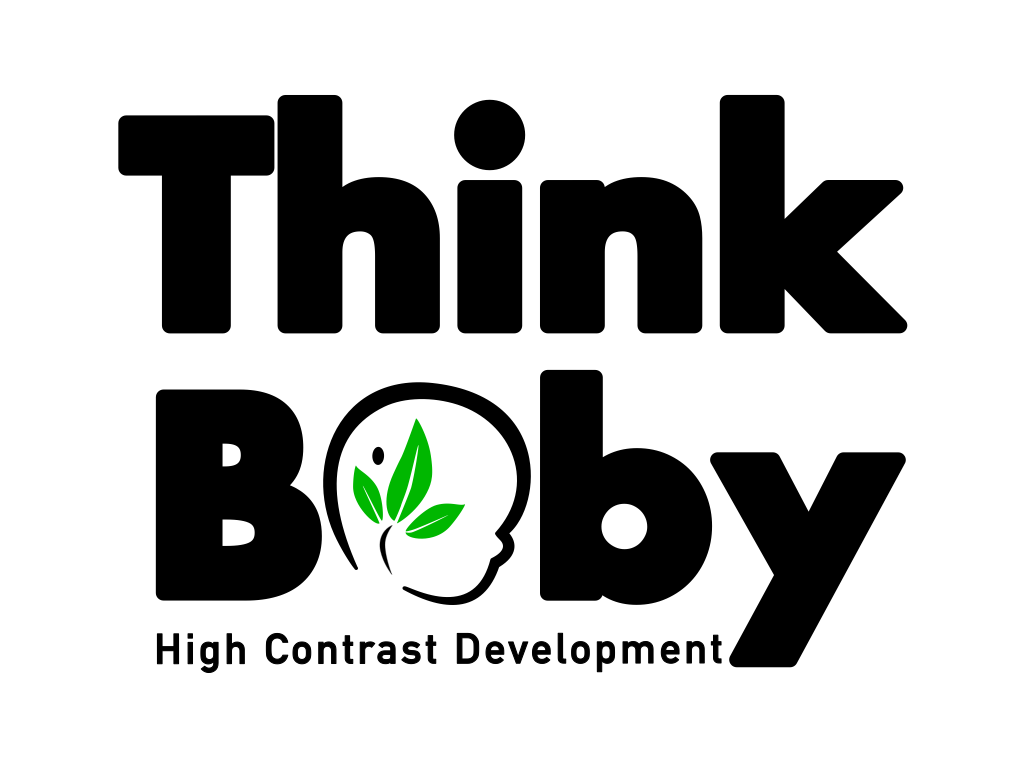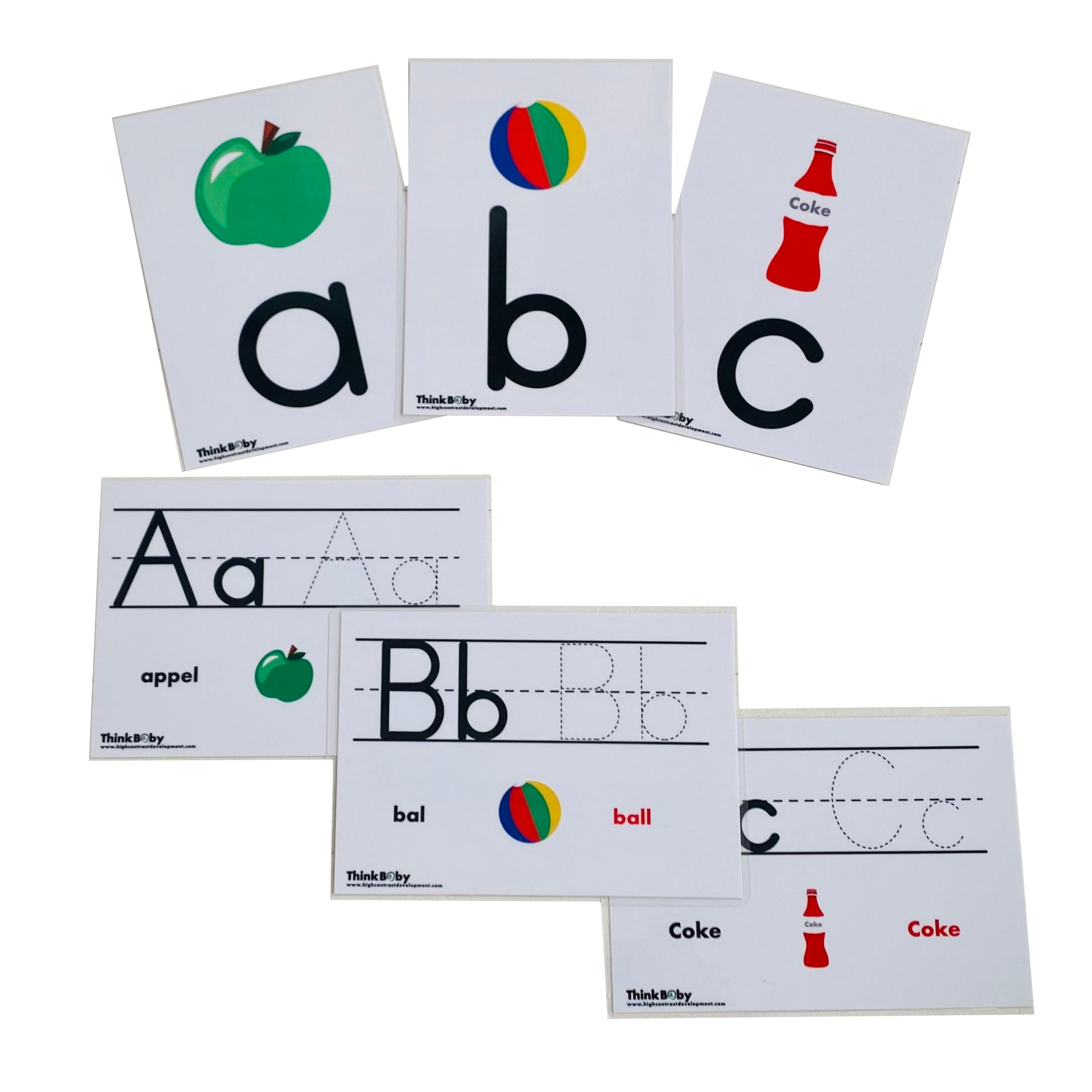Think Baby High Contrast Development
Phonetic Alphabet Flashcards – From 2- 3 years
Phonetic Alphabet Flashcards – From 2- 3 years
Regular price
R 195.00 ZAR
Regular price
R 225.00 ZAR
Sale price
R 195.00 ZAR
Unit price
per
Tax included.
Shipping calculated at checkout.
Couldn't load pickup availability
Phonetic ABC's
26 Double Sided A6 Laminated Cards
- Bilingual (English & Afrikaans)
- Contains associations with phonetic alphabet sounds
- Traceable letters that can be wiped clean to try again
- Laminated with round corners for safety, durability and easy cleaning
- Handy to travel with, or send along to a care giver
Whats included
Whats included
How to use
How to use
Shipping & Returns
Shipping & Returns
Shipping in South Africa approx.: 2-5 Working Days. Read our Shipping policy for more information.
Read our returns policy for more information on returns & refunds
Dimensions
Dimensions
Care Instructions
Care Instructions
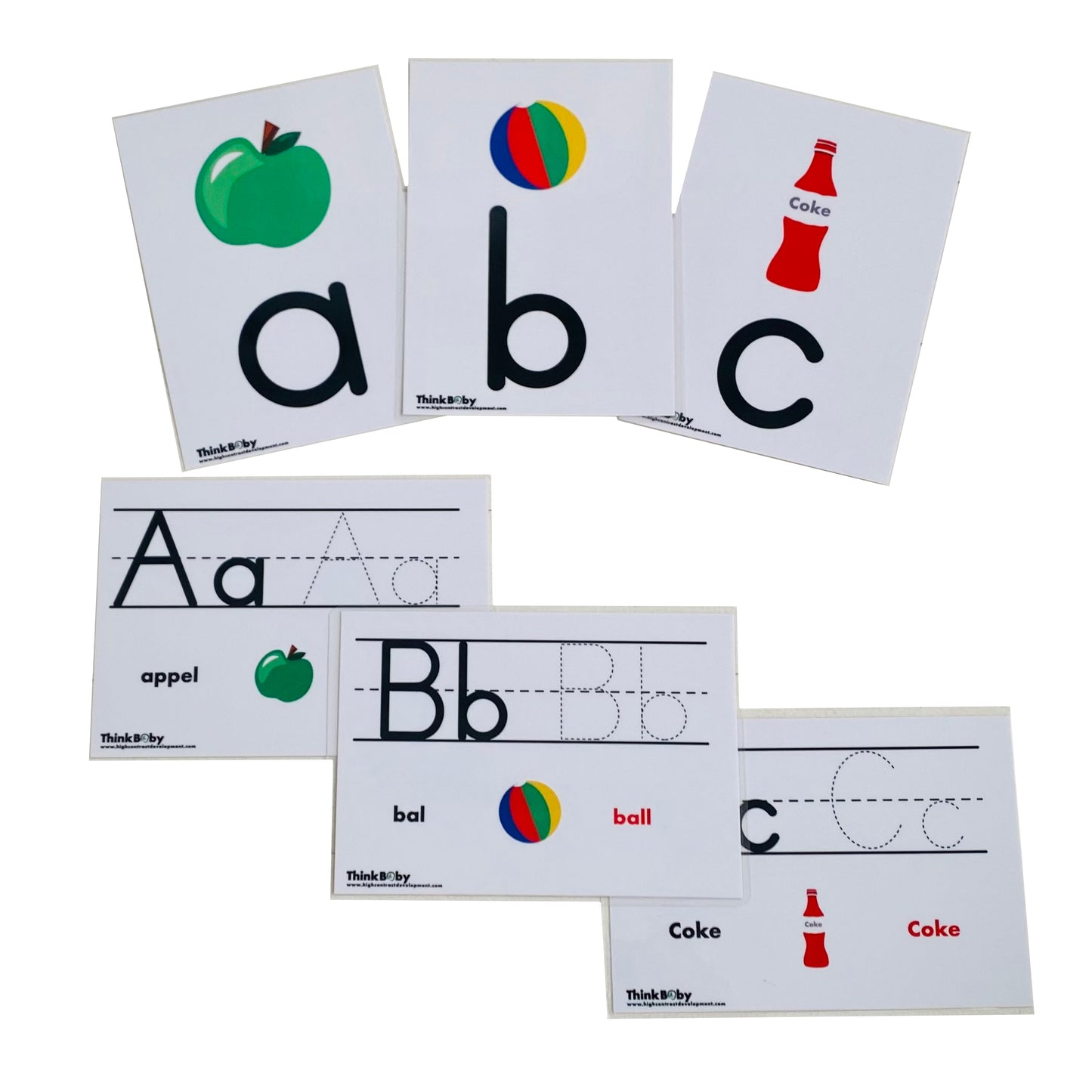
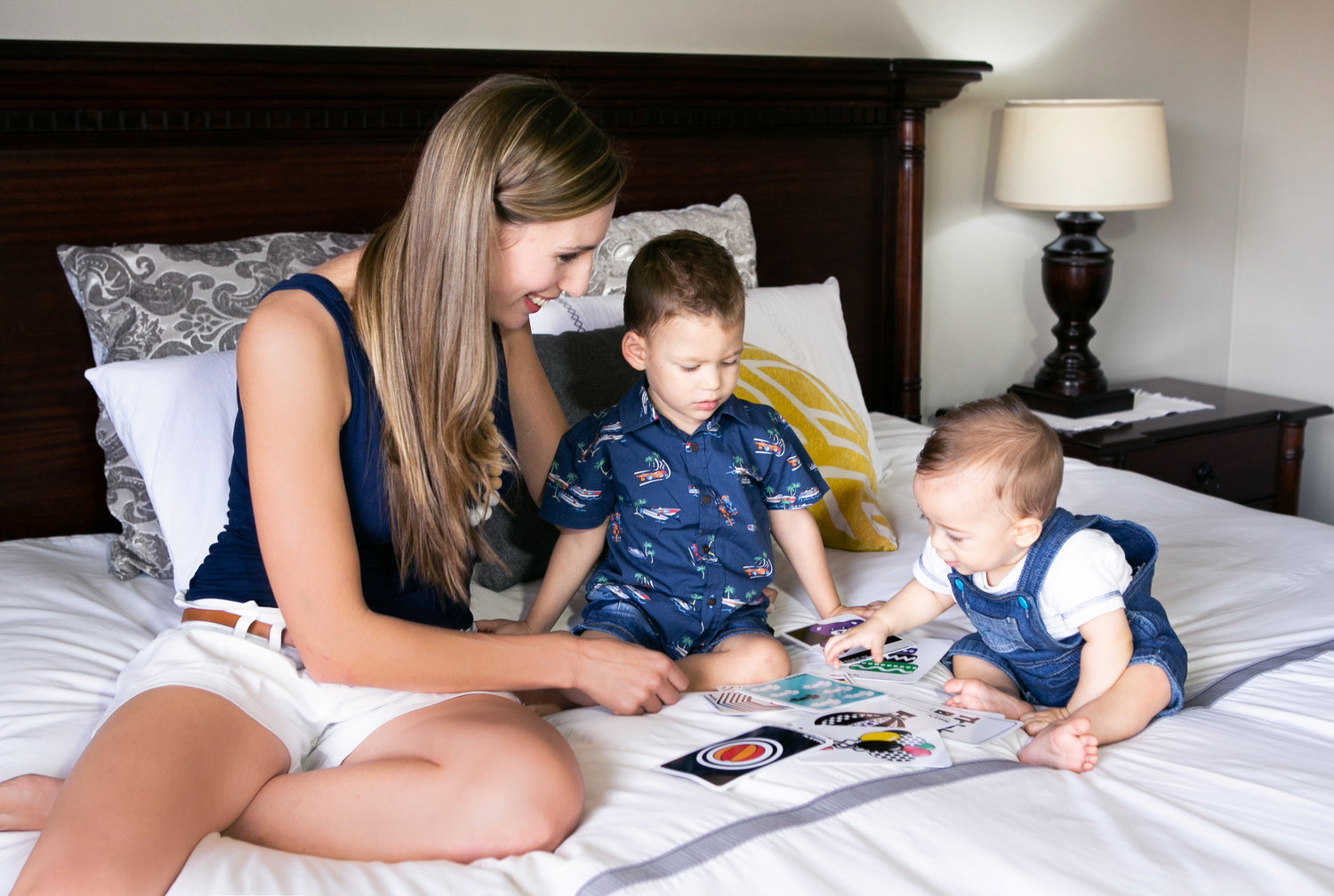
WHY a Phonetic Alphabet?
-
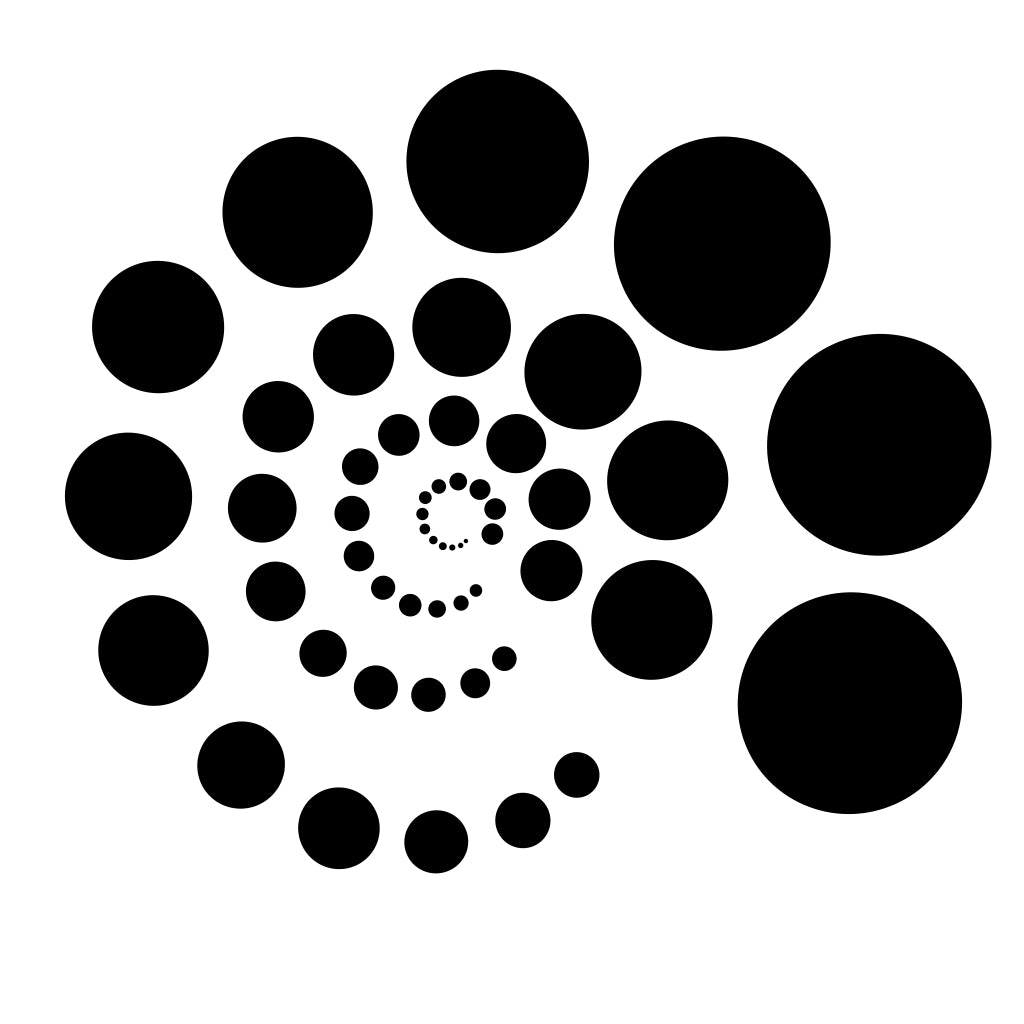
WHY High Contrast?
When arriving in this world, and throughout the first year of life, your baby is often overwhelmed by what they see. High Contrast Images provide a calming point of focus - something your baby can easily focus on and will love to look at.
Simple Black and White Images can be introduced from birth. It is an age appropriate stimulation and encourages strong neurological activity, which will literally grow and develop more areas of the brain. This, not only assists with the timely maturation of the visual and other sensory systems, but naturally creates a good foundation for learning and concentration skills.
-
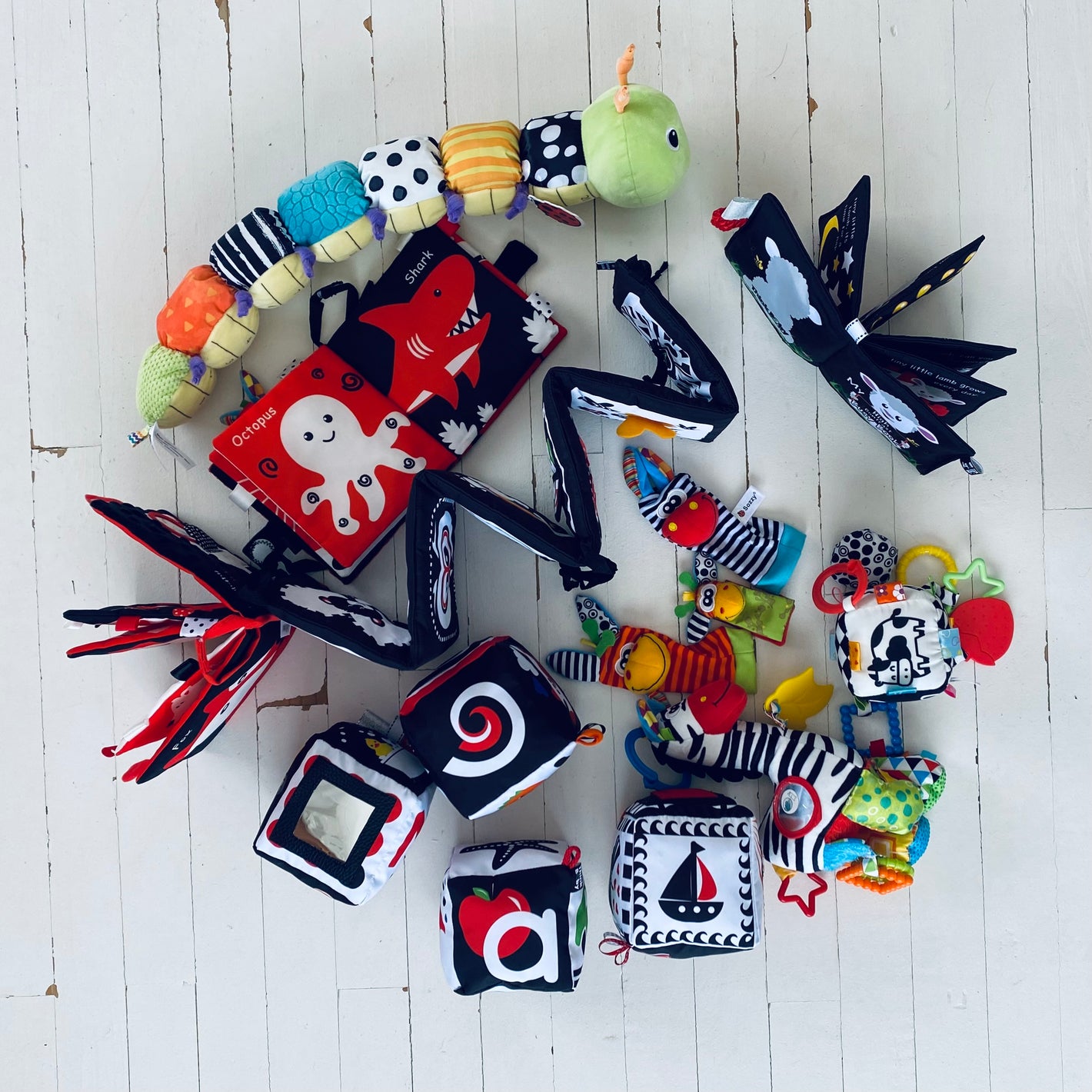
WHY Sensory Stimulation?
A Newborn baby's brain is approximately one quarter of the size that it will one day become.
The remarkable sensory system is already developing in the womb, but once born, all senses develop and mature at different stages.
Regular positive sensory input cause frequent activation of synapses in sensory pathways, which results in stronger, more memorable connections. On the other hand, when pathways are not stimulated, they can start to fade away. It is therefore vital for a baby to receive positive and age appropriate sensory stimulation of all their senses from birth, as this directly influences the maturation of the sensory system and ultimately the growth of the brain.
